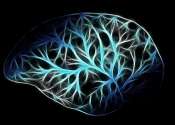Antibody designed to recognize pathogens of Alzheimer's disease
Researchers have found a way to design an antibody that can identify the toxic particles that destroy healthy brain cells—a potential advance in the fight against Alzheimer's disease.
May 25, 2020
0
890









